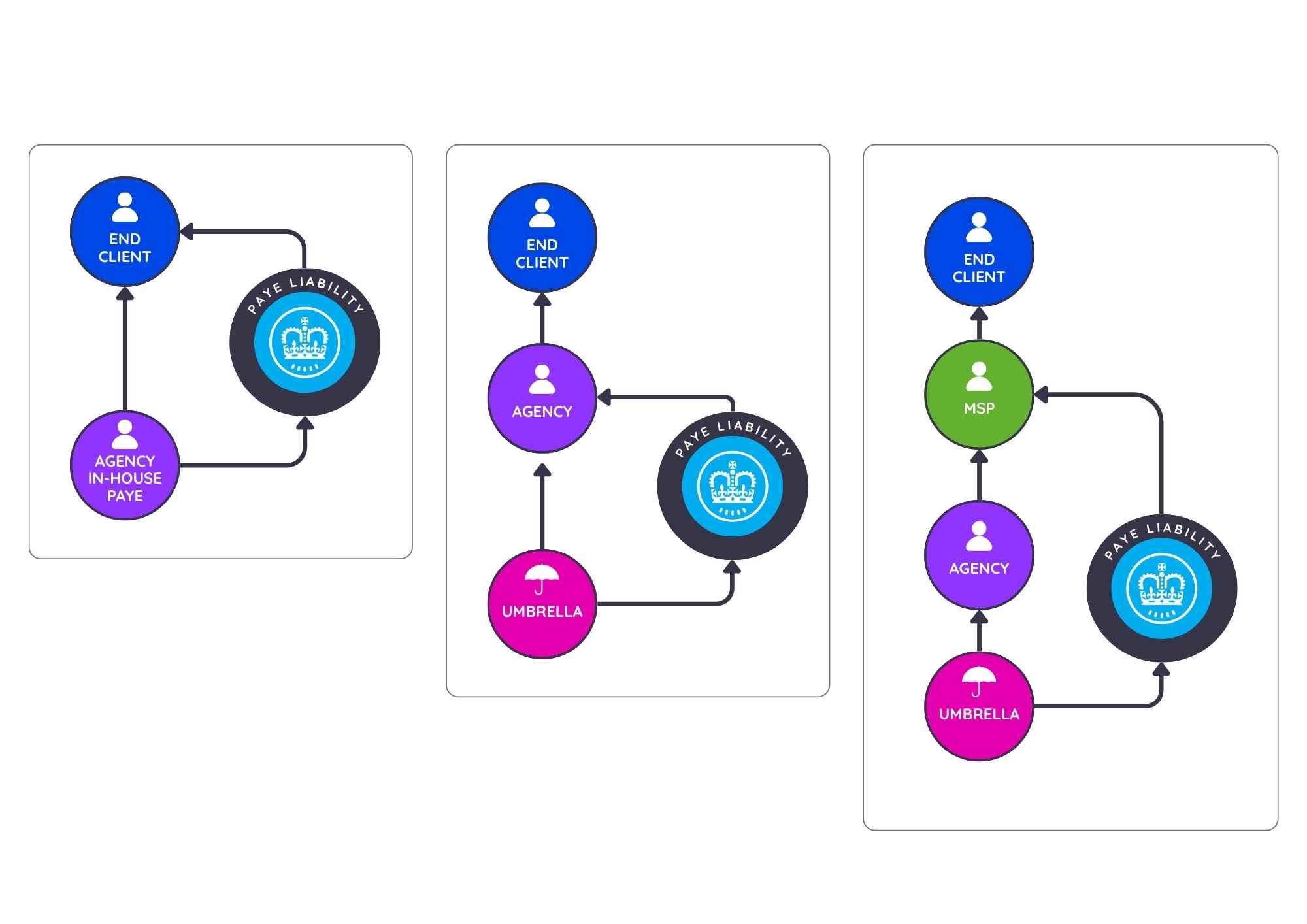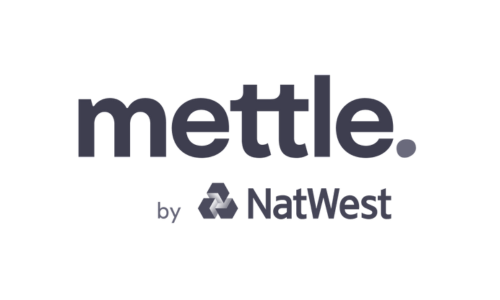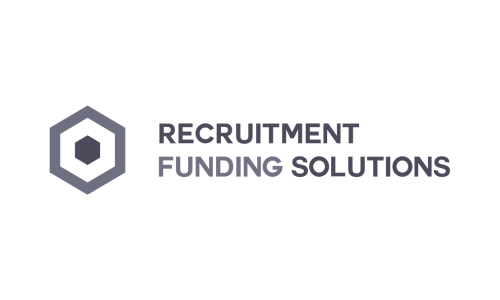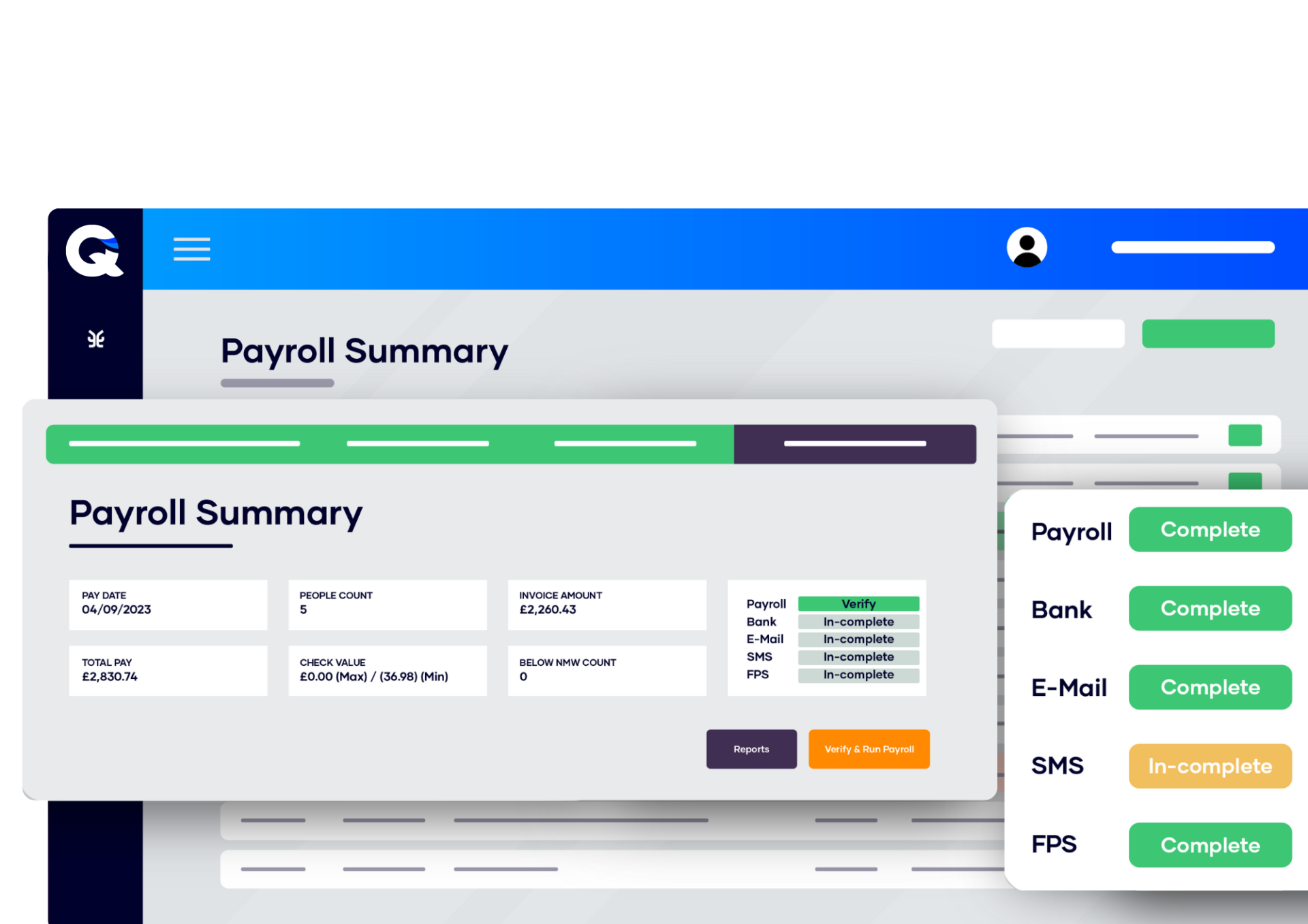Introduction: Why is change happening now?
In recent years, HMRC and government policymakers have been increasingly focused on tightening compliance within the temporary labour market. This is not without cause. The proliferation of non‑compliant umbrella companies, disguised remuneration schemes, tax avoidance structures, and hybrid employment models has undermined both worker protections and the integrity of the UK tax system.
Recruitment agencies have often found themselves caught in the middle of a complex web of intermediaries, sometimes unknowingly facilitating arrangements that fall outside HMRC’s expectations. Meanwhile, genuine providers operating responsibly have been disadvantaged by a lack of enforcement against bad actors.
To address this imbalance, the Draft Finance Bill 2025 introduces two significant reforms that will come into effect from 6 April 2026. These measures are designed to clean up the supply chain, enforce accountability across all parties involved, and ensure taxes are properly paid. HMRC’s underlying objective is to modernise legislation to reflect how labour is supplied in today’s economy and close the compliance gaps that have allowed risk and liability to accumulate unchecked.
These reforms will have a significant impact on recruitment agencies working with umbrella companies. They aim to improve compliance in the labour supply chain, ensure PAYE and NICs are paid correctly, and close down high‑risk models that create tax loss or worker exploitation. The below will help explain the changes, the practical implications for your business, and the steps you should consider now to mitigate risk.
Mandatory HMRC registration for tax advisers
One of the lesser‑known reforms is the requirement for certain businesses to register with HMRC if they provide tax advice or tax services. This includes preparing or submitting tax documents such as PAYE submissions, VAT returns, or dealing with HMRC on behalf of clients. To register, you must be up to date with your own tax filings, have no sanctions for tax avoidance or serious criminal convictions, and be supervised for anti‑money laundering.
A standard employer/employee PAYE arrangement is outside the scope of this registration. However, many umbrellas do not operate solely on this basis. They may engage workers under hybrid arrangements (also known as the Elective Deduction Model), sole trader models, provide outsourced payroll bureau services and other payroll related services . Agencies should not assume that an umbrella is exempt simply because it operates PAYE. Further HMRC guidance is expected following the consultation, which closes on 15 September 2025.
See Government guidance here: Modernising and mandating tax adviser registration with HMRC
Joint and several liability for unpaid PAYE (Chapter 11)
From April 2026, the “top” UK‑resident agency in the supply chain, or in some cases, the end client, will be jointly and severally liable for PAYE if an umbrella fails to meet its obligations. HMRC can recover the full amount from any liable party without first pursuing the umbrella. If the top agency is offshore, or connected to the umbrella, the liability moves up to the end client.
There is no reasonable‑care defence, even if you did checks, you could still be liable if PAYE goes unpaid. To understand how this works, the legislation is broken down into three key sections:
Targeting hybrid and disguised umbrella models (section 61Z1)
In addition to joint liability, Section 61Z1 introduces anti-avoidance rules designed to combat the use of so-called “purported umbrella companies”. These are structures where the worker is not genuinely employed by the umbrella but is paid in a way that mimics employment to disguise the true nature of the relationship.
A key example is the use of hybrid models, where the umbrella engages the worker under a “contract for services” (as if they were self-employed) but treats them operationally as employees. This might be done to avoid National Minimum Wage compliance, pension contributions, or other employment protections, while still deducting PAYE.
From April 2026, if HMRC determines that the arrangement has the characteristics of employment, regardless of how it is contractually framed, they will treat the worker as employed. This means:
- PAYE must be accounted for in full
- All parties in the supply chain can be made jointly liable for unpaid tax
- Any structure designed to avoid tax or employment duties will be disregarded
In practice, this means hybrid models will not survive scrutiny. Recruitment agencies relying on umbrella providers operating these models risk being financially liable if HMRC intervenes.
Section 61Y – The liability trigger
This section sets out when joint and several liability applies. It applies when:
- A worker personally provides services to a client;
- The worker is employed by an umbrella company (a third party that supplies labour);
- The worker has no material interest (over 5% shareholding) in that umbrella; and
- The umbrella company arrangement conditions are met, defining it as a legitimate umbrella scenario.
It applies only to genuine employment relationships, excluding sole traders and limited companies/ PSCs.
Section 61Z – Identifying the relevant party
This section determines which party HMRC will pursue:
- If there’s an agency between the client and umbrella, the top UK‑based agency is the relevant party.
- If the agency is offshore or connected to the umbrella, liability passes to the end client.
- If both are offshore, HMRC will pursue the nearest UK‑resident intermediary.
Only one intermediary is targeted for liability in each supply chain.
Section 61Z1 – Purported umbrellas (anti‑avoidance)
This anti‑avoidance provision targets entities that appear to be umbrellas but do not genuinely employ the worker. HMRC can reclassify these arrangements as umbrella employment, triggering PAYE liability for all parties in the chain. It also brings other employment law obligations, such as NMW, holiday pay, and pensions into play.
Umbrella insolvency: implications for agencies
Umbrella companies can become insolvent for a variety of reasons, including poor financial management, underpayment of taxes, regulatory fines, or operating unsustainable pay models. If an umbrella becomes insolvent without paying its PAYE, liability can transfer to the recruitment agency under Chapter 11.
Agencies should take proactive steps to assess the financial health of their umbrella partners. We recommend using specialist credit‑checking providers such as CreditSafe to review credit ratings, financial statements, and trading history. This can help identify early warning signs of instability, such as:
- Consistently poor credit scores.
- Late filing of accounts.
- Frequent changes in directors or ownership.
- Significant year‑on‑year losses.
Regular monitoring allows agencies to take timely action, such as suspending placements or moving workers to a more stable umbrella, before a collapse occurs.
The elective deduction model (hybrid model)
This is where a worker is engaged under a contract for services, effectively self‑employed, but has PAYE deductions for tax purposes. These arrangements fall under Chapter 7, section 44 of ITEPA. The agency must be able to prove there is a lack of supervision, direction, or control (SDC) over the worker; otherwise, the agency is liable for PAYE.
This model has been used in some cases to pay below the National Minimum Wage (NMW). While the immediate liability for an NMW breach sits with the umbrella, the risk for agencies comes if the umbrella also fails to pay PAYE and becomes insolvent. In that scenario, the unpaid PAYE can transfer to the agency under Chapter 11’s joint and several liability provisions.
Preparing now
Agencies should act well before April 2026. Begin by mapping your current umbrella relationships, reviewing contracts, and identifying high‑risk engagement models. Train staff, implement compliance monitoring, and update supplier agreements to reflect the new rules. Early action will reduce your exposure and help you maintain client confidence.
Key dates to know
The following timeline illustrates when recruitment agencies should expect key events and enforcement to begin:
- Mandatory registration of tax advisers
- Joint and several liability for umbrella company PAYE
- Anti-avoidance provisions (Section 61Z1)
Visualising liability in the supply chain
To understand how liability may now be shared under these reforms, the following charts represent the recruitment supply chain and where HMRC can now direct enforcement:

End clients may seek to distance themselves from PAYE liability by requesting recruitment agencies outsource internal PAYE to accredited Umbrella providers. Agencies who align with the right Umbrella providers can create an attractive solution for their clients.
Why QPS?
As recruitment agencies face increased scrutiny and accountability, choosing the right payroll and accountancy partner has never been more important. At QPS, we are uniquely positioned to help agencies navigate these legislative reforms with total confidence.
We hold full FCSA Accreditation, recognised as the gold standard for compliance in the umbrella and payroll sector. We are also SafeRec Certified, meaning our PAYE processes are audited in real time with live RTI and payslip validation technology.
In addition:
- We are formally registered with HMRC as a tax agent, enabling us to represent clients directly and compliantly.
- We are supervised by HMRC for AML purposes, meeting key eligibility criteria under the new tax adviser registration regime.
- Our infrastructure includes real-time reporting for RTI and PAYE submissions, giving agencies full visibility over their workers’ pay compliance.
Our focus is not just on compliance but on building trust with agencies who want to do things the right way, while protecting their own reputation and liability.
Conclusion: What should recruitment agencies do now?
The intent behind these reforms is clear: HMRC wants to dismantle tax avoidance, increase transparency, and force accountability across the labour supply chain. For recruitment agencies, this marks the beginning of a new enforcement era where due diligence, supply chain integrity, and compliance documentation are not just good practice, but essential risk mitigators.
Agencies should:
- Start reviewing all umbrella and payroll providers immediately
- Avoid or disengage from providers using hybrid or self-employment-style models
- Update contractual terms to reflect risk-sharing and compliance expectations
April 2026 may feel distant, but the preparation must begin now. These legislative changes are not just procedural updates—they represent a significant shift in liability, enforcement, and the way HMRC views risk in the recruitment sector.
The agencies that act early will not only protect themselves but will stand out as safe and trustworthy partners in an increasingly scrutinised market.






